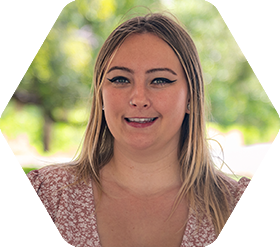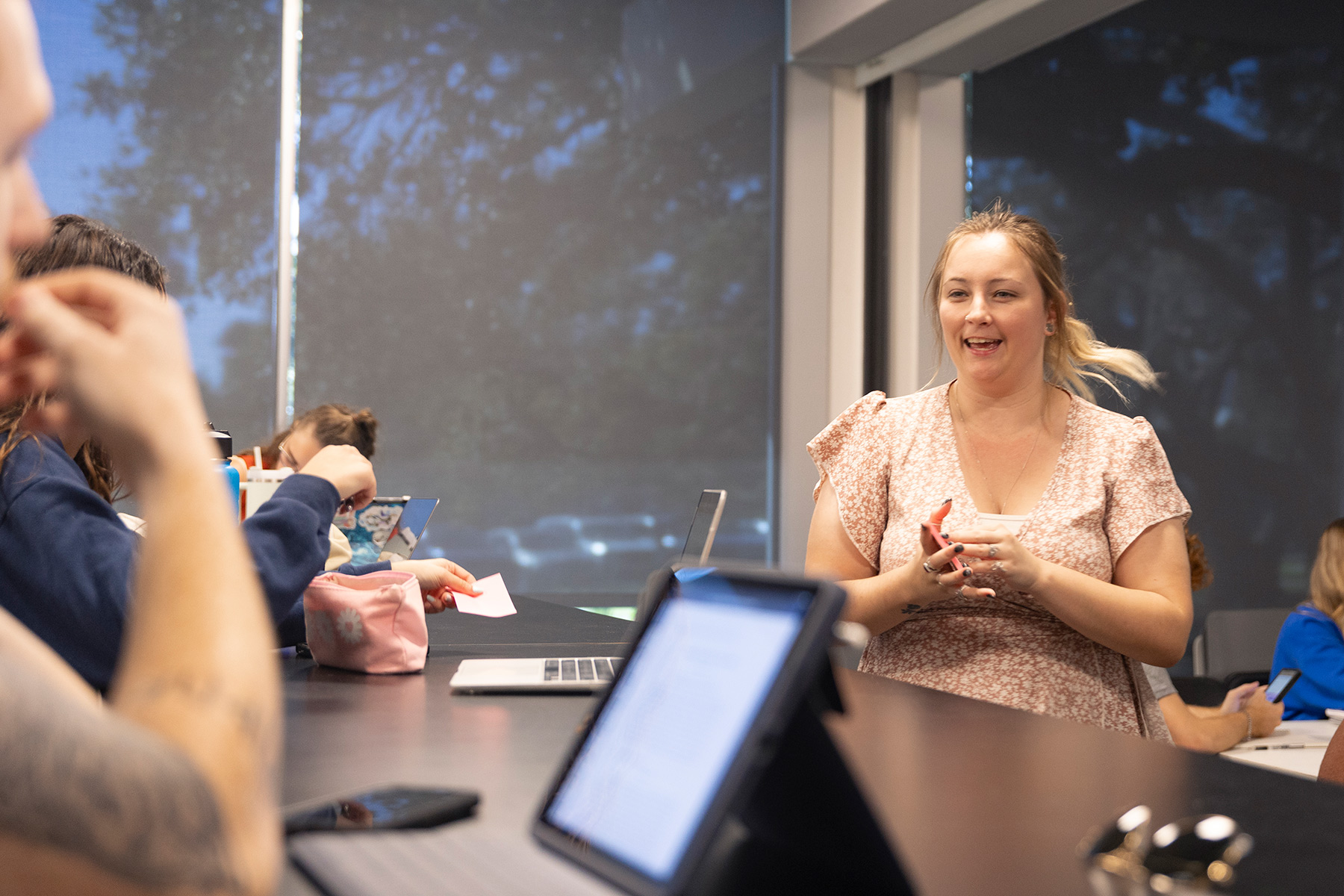Bearded dragons, leopard geckos and corn snakes, oh my!
Rehabilitating and owning more than 20 lizards and other reptiles over the years, Assistant Professor of Animal Studies Erin Rickman has moved from Lancing, England, to Florida—finding her niche at Eckerd College, in St. Petersburg.
“I was very much known as the reptile person,” she explains, because she had a bearded dragon starting around age 8. To this day, she owns several reptiles, such as Frank and Kev, the frilled dragons.
When she began to consider a career in animal studies, she hadn’t realized that work in the field of animal behavior existed. She went on to earn a Foundation Degree in animal science at the University of Brighton and a Bachelor of Science in animal behavior and welfare at Plumpton College (Royal Agricultural University). She currently is a Ph.D. candidate in animal behavior and welfare at the University of Lincoln—set to receive her terminal degree in the new year.
After earning her B.S. at Plumpton College, Rickman taught about wildlife behavior welfare and guest lectured there, mentoring students and running the exotics program and research projects program.
Immediately starting her Ph.D. program and looking into career options, she found herself at Eckerd. She had been visiting the U.S. frequently, especially because one of her best friends married an American, and Rickman’s husband, Jack Hills, was interested in moving abroad.

“We fell in love with Florida,” she says. “This is where we want to be.”
She researched animal-based programs, but it was difficult to find somewhere she felt was a good fit due to her research—including a little biology but primarily welfare, cognition and psychology. Eckerd looked to be a great fit.
After earning her position at Eckerd, Rickman has taught courses such as Introduction to Animal Studies and Animal Welfare Science.
She has been surprised by the range in fellow professors’ interests and knowledge at Eckerd but finds it enriching because she’s becoming more of a generalist in her research on reptile and amphibian behavior, biology, welfare and cognition—looking at how captive enclosures impact animals.
“It was quite a surprising but exciting prospect that would allow me to grow,” she says, “and I could make connections with professors that are in a completely different type of field to me. And with how interdisciplinary my research is, it’s an amazing research opportunity on that front.”
Rickman has enjoyed teaching passionate students of various majors, finding it insightful and energizing to see how different minds think, such as more creatively or scientifically.
“I quite enjoy the thought-provoking areas of teaching,” she says, “and I like watching the lightbulbs go off as you see people thinking about things that maybe they haven’t thought about before. A really common one that I will talk to my students about is trophy hunting.”
Rickman admits she is for trophy hunting if it’s done in a particular way to prevent ecosystem collapse.
“You can guarantee by the time we spent half an hour on this topic, they will go from being against trophy hunting to pro trophy hunting when they start to understand the conservation value of it,” she continues. “If someone walks out saying, ‘Great points, Erin, but you still haven’t changed my mind,’ that’s totally fine as well. You know, like, I really don’t mind … I just enjoy those conversations.”
Rickman, explaining how lucky she is to be in her teaching position in the States says, “You know, you hear these things happening to people, but I never thought I would be one of those people.
“I’m just very thankful that I’ve been given this opportunity. Florida was a dream. Researching reptiles was a dream. Teaching—once I realized the passion I had for it—was a dream.”













